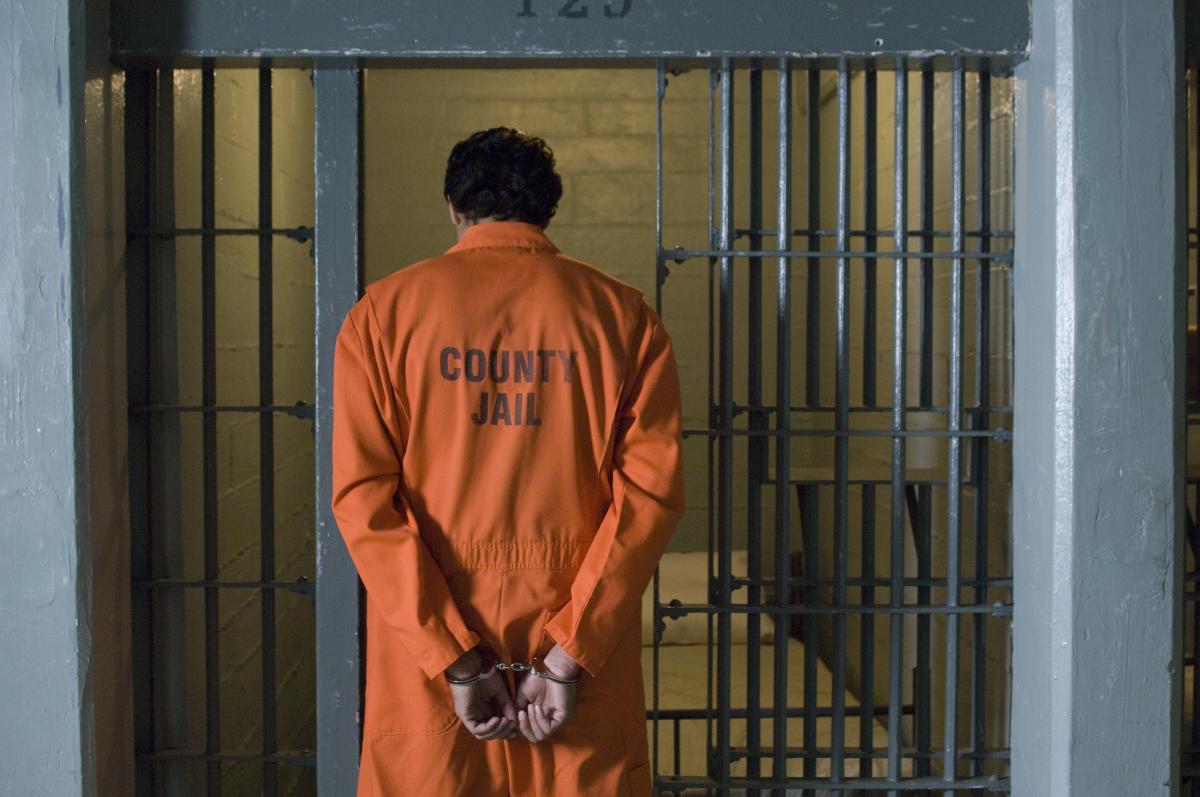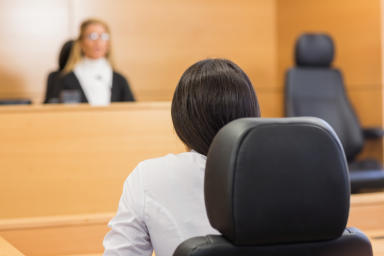What to Expect at Arraignment

While Vera.org estimates that ten million people will be arrested in the United States every year, most people accused of a crime are unaware of the ins and outs of the legal process that will consume their lives in the coming months. After their arrest, the first major event a criminal defendant will face is their arraignment hearing. While many confuse the arraignment with the criminal trial itself, the goals, expectations, and results of an arraignment hearing are far different than that of a criminal trial.
What is Arraignment?
Before attending your arraignment, it is important to understand the overall purpose and proceedings. An arraignment is the defendant’s initial appearance in court after being charged with a crime. At this initial hearing, the defendant is advised of all charges they face and will be offered the chance to enter a plea against them. Generally, any felony or misdemeanor charges will necessitate an arraignment to ensure the defendant is fully aware of the charges against them. During the arraignment, the defendant has the legal right to request that the individual charges are read to them. Arraignments are a public, not private, hearing.
When Does Arraignment Happen?
Following the arrest, the arraignment hearing is the first major event of the legal process. Arraignments always occur shortly after the defendant is arrested. If the defendant is in jail, the arraignment must occur within 48 to 72 hours from the date of arrest. This requirement prevents the courts from indefinitely detaining the defendant without identifying the charges against them.
What Happens at Arraignment?
What is the purpose of an arraignment? What should defendants expect from the process? It is important to understand the goals and purpose of an arraignment in advance. A lack of understanding of the process may result in irreparable mistakes and ruin the court’s first impression of the defendant. At the arraignment, the two primary tasks of the court are to inform the defendant of the charges they are facing and their rights as a criminal defendant.
Inform Defendant of Charges
First, the court must inform the defendant of the charge or charges they are facing. Everyone has the right to know which crimes they have been accused of and the possible ramifications of these crimes. The charges against the defendant must be clearly specified. It is important to note that as the discovery process continues, more charges may be added against the defendant.
Inform Defendant of Rights
Secondly, the defendant must be made aware of their legal rights. The defendant will be advised of their constitutional right to a fair trial, their right to court-appointed legal representation, and their right against self-incrimination. You must be informed of these fundamental rights regardless of the state in which you are arraigned and tried.
Entering a Plea
Once your charges and rights have been explained to you, you will have the opportunity to enter a plea. Your plea is your statement of your guilt or lack thereof. It is the defendant’s chance to declare their innocence or to bargain with the prosecution for a less severe sentence. If you are a defendant facing criminal charges, it is in your best interests to consult with a qualified defense attorney before entering a plea at your arraignment.
Not Guilty
The first plea option at an arraignment trial is not guilty. This plea means that the defendant admits no guilt and disputes the charges. If the defendant is innocent of all charges, a plea of not guilty is an obvious choice. In most cases, defense attorneys will counsel their clients to plead not guilty.
No Contest
A no contest plea (sometimes called nolo contendere) means that the defendant does not admit guilt but acknowledges the strength of the prosecution’s evidence. Once a defendant pleads no contest, the trial will proceed much the same way as if the defendant had pleaded guilty. There are many reasons a criminal defendant may plead no contest to the charges; however, it is important to note that this plea option may not be available in all states.
Guilty
If the charges are minor, defendants may choose to acknowledge their guilt to avoid a lengthy trial. With criminal trials, however, the defendant must fully consider the pros and cons of a guilty plea. Once a defendant has pleaded guilty, they cannot claim they are innocent of the crimes they have been accused of committing. In some cases, a defendant may plead guilty to criminal charges in exchange for a shortened sentence or reduced penalties.
Bail or Pretrial Release
Many criminal defendants are afraid of their entire lives being overturned in the interval between arrest and trial. If they are held in jail for this duration, they could lose their jobs, miss important family events, and suffer unfair discrimination in their communities. For this reason, many defendants are anxious to learn at their arraignment whether or not they will be released before their trial.
At an arraignment, the judge may set conditions for the release of the defendant. Because the defendant has not yet been convicted, they must be treated as innocent until proven guilty. Therefore, many defendants are released unless there is a significant reason to hold the defendant until the trial. The conditions of the release vary greatly and will depend on the factors detailed below.
Pretrial Release on Recognizance
In cases where the crimes in question are minor misdemeanors rather than felonies, defendants may be granted pretrial release on recognizance. When defendants are granted pretrial release on recognizance, they are pledging to report to all court dates and not flee the area. A defendant may only be granted a pretrial release if their defense attorney can prove they are not a flight risk or a present danger to the community and have no criminal background (or only a history of minor convictions).
Supervised Pretrial Release
If the court believes that the defendant requires an extra level of oversight during their release, they may grant the defendant supervised pretrial release. The supervised release of criminal defendants can be compared to being held on probation. During the interval between arraignment and trial, the defendant must regularly report to an officer of the court.
Release on Bail or Bond
In some cases, a judge may grant the defendant’s release only after the payment of bail or bond. The bond price will depend on the severity of the accused crimes and the risk associated with the defendant’s release. The defendant or their representative must post the bond with the court to be released on bond. This money will be returned to the defendant on completion of the trial.
Set Court Dates
At your arraignment, the judge will set a date for your trial. Each state has its own laws that dictate how soon a criminal trial must be held after the arraignment. The length between the arraignment and criminal trial most often depends on whether or not the defendant will be held in custody.
Can I get a continuance at my arraignment?
A continuance is an extension of time to prepare for an upcoming trial. The defendant can ask for a continuance at their arraignment if their defense suggests that they would like more time before the trial begins.
Will I Talk to My Court-Appointed Lawyer Before or After My Arraignment?
If you are being charged with criminal offenses, you have the right to be represented by a court-appointed attorney. However, your court-appointed lawyer will not be appointed until the day of your arraignment. Therefore, if you would like to have legal representation at your arraignment, you will be responsible for finding your own attorney in advance.
Can I Get My Case Thrown Out at Arraignment?
While this is extremely rare, in some cases, the prosecution may throw out charges against the defendant at the arraignment trial. Neither the judge nor the defense has the authority to throw out charges, so whether or not your case is thrown out depends entirely on the prosecution. The only instance in which the prosecution is likely to throw out a case is if they have uncovered compelling evidence of the defendant’s innocence.
How Long Can I Be Held Before Arraignment?
An arraignment should be held shortly after your arrest. While every state has slightly differing laws, you should expect to be held no longer than 48-72 hours before your arraignment. If you are held for longer after your arrest, contact an experienced defense attorney to ensure you are not being unfairly detained.
What Should I Wear?
At your arraignment, your attire should meet the standards of proprietary set forth by the court. Generally, this means clean and professional-looking clothing, including button-up shirts or knee-length skirts and dresses. Your first impression in the eyes of the court is at your arraignment, so it is important to consider how your attire reflects your respect for the court.
Legal Resources for Defendants
It is likely that you are searching for quality legal advice and information prior to your arraignment and subsequent criminal trial. The resources listed below can help criminal defendants learn more about their rights and what to expect during the arraignment and trial process. These resources are an excellent start, but defendants may be able to find further resources specific to their state and local communities.
Department of Justice
Some defendants are facing criminal charges at the federal level. For criminal defendants who are seeking a more detailed timeline of the federal criminal trial process, the United State Department of Justice offers comprehensive information on its Criminal Justice Process page. This page allows defendants to learn more about how a federal criminal trial may differ from those held at the state level.
Lawhelp.org
If you are facing criminal charges, you have the right to a court-appointed attorney. However, if your state does not require you to be represented at your arraignment, you may need a defense attorney to counsel you on your answer to your charges as soon as possible. For low-income individuals, a high-cost attorney isn’t an option. However, that does not mean that you cannot find quality pro bono or low-cost legal representation near you. Lawhelp.org is a program associated with Pro Bono Net, a nonprofit organization dedicated to ensuring everyone has access to legal justice regardless of their financial circumstances. The Find Legal Help tool can help those facing arraignment find a low-cost attorney in their state.
Expertise.com StaffAuthor
Step into the world of Expertise.com, your go-to hub for credible insights. We don't take accuracy lightly around here. Our squad of expert reviewers, each a maestro in their field, has given the green light to every single article you'll find. From rigorous fact-checking to meticulous evaluations of service providers, we've got it all covered. So feel free to dive in and explore. The information you'll uncover has been stamped with the seal of approval by our top-notch experts.




